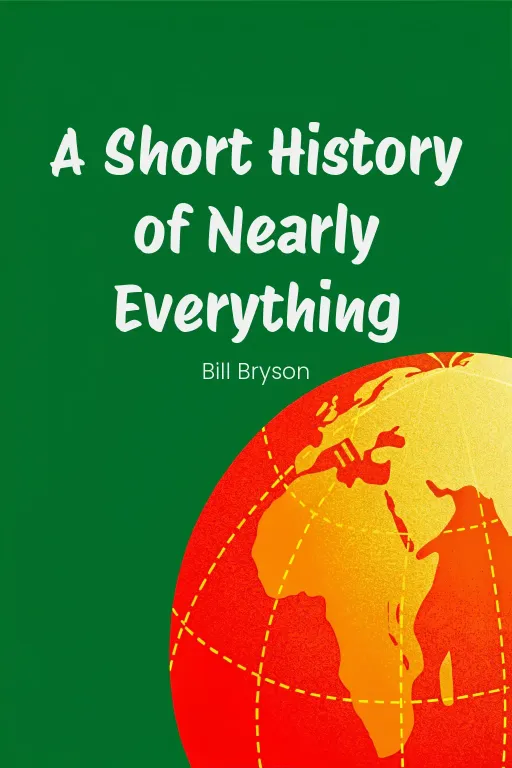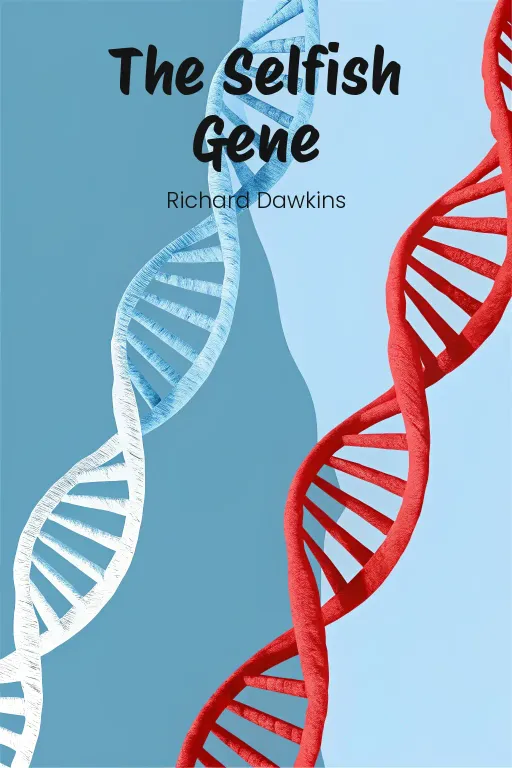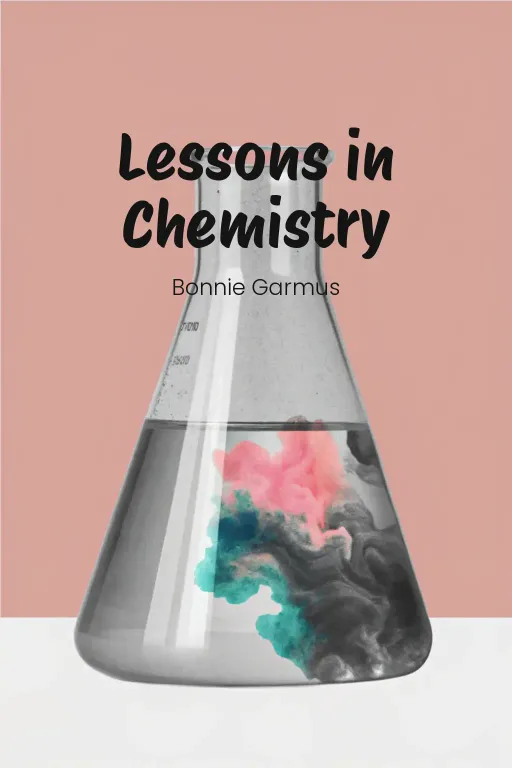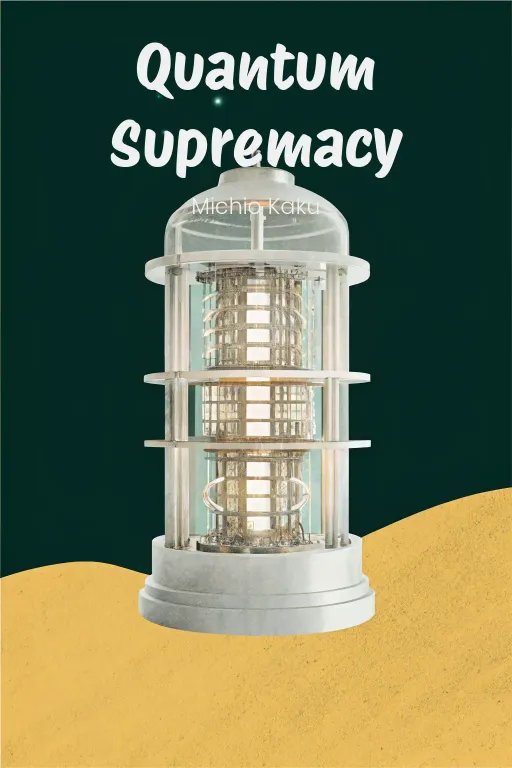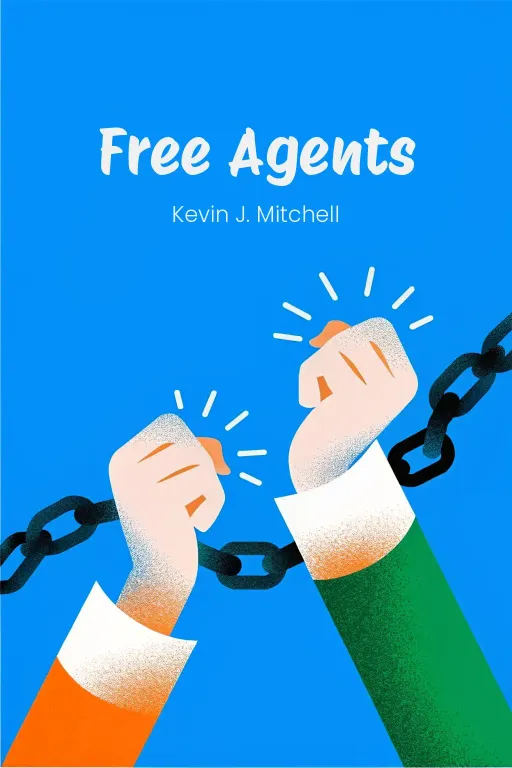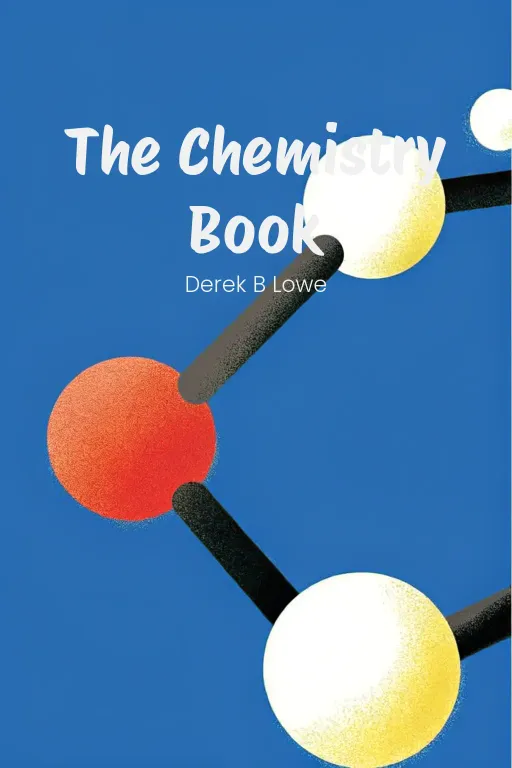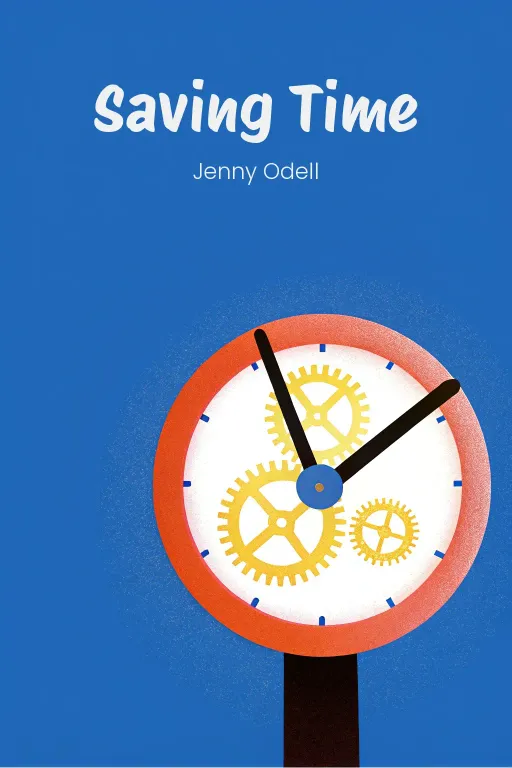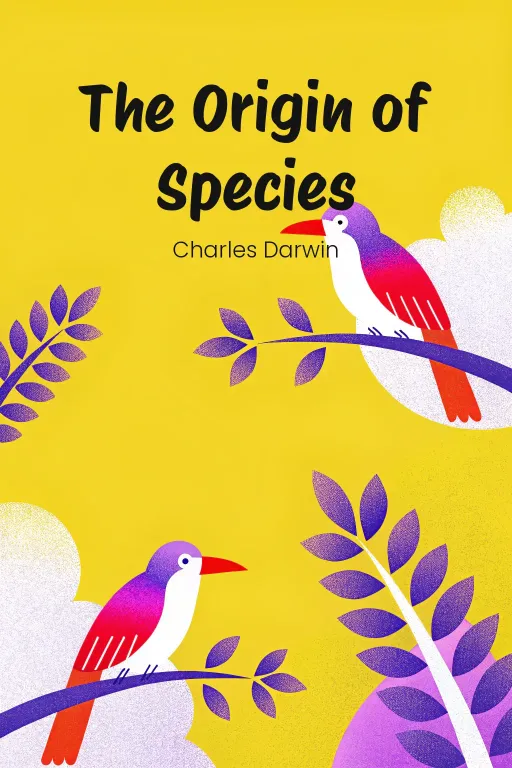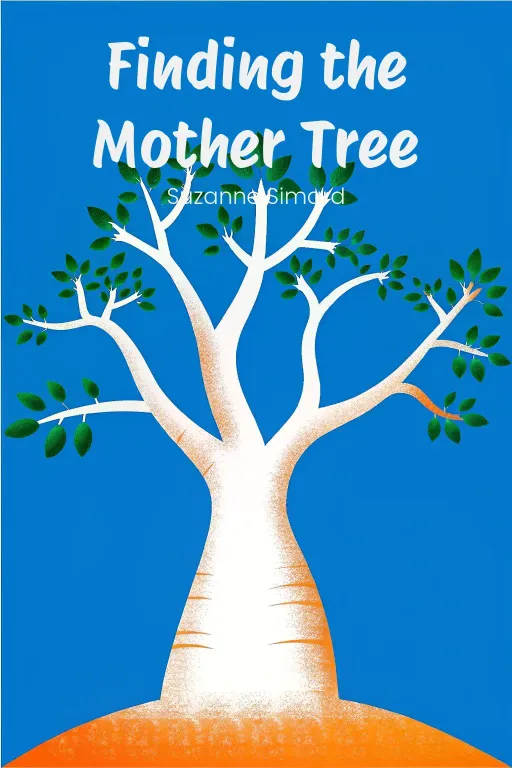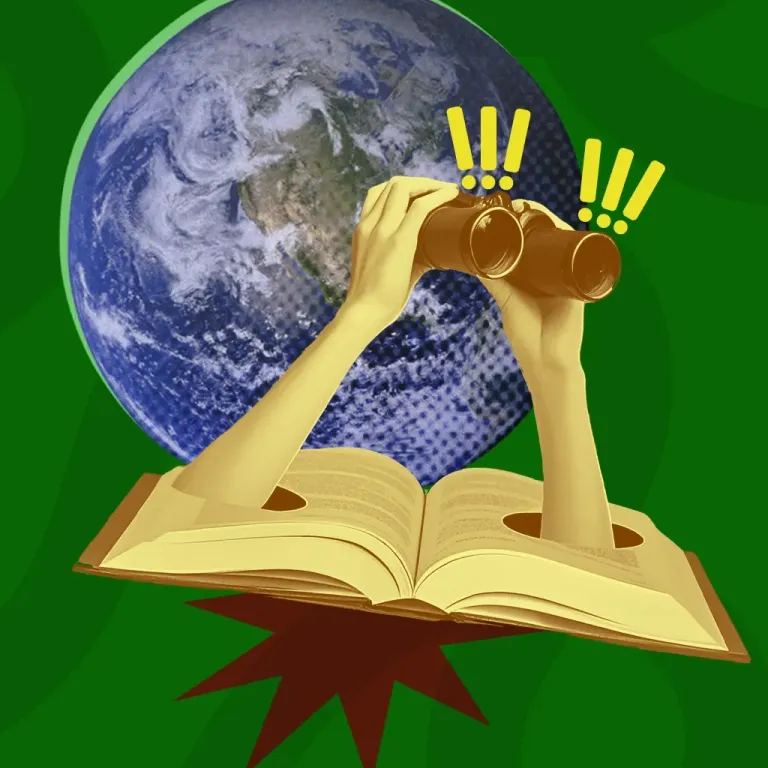
Big Bang to Us: A Wild Ride!
Podcast by Wired In with Josh and Drew
A journey into the most intriguing and intractable questions that science seeks to answer
Introduction
Part 1
Josh: Hey everyone, welcome back! Today we're diving into a book that takes on a huge task: explaining, well, just about everything. I mean, how did we get here, from the Big Bang to you listening to us right now? Drew: Seriously. If you've ever pondered how the universe went from, as you said, an explosion of nothingness to things like, I don't know, the internet, then stick around. Josh: Exactly! We're unpacking A Short History of Nearly Everything by Bill Bryson. It’s basically a tour of, well, nearly everything, from the Big Bang to Beethoven. But Bryson doesn't just lay out the science; he tells the stories behind the discoveries. He really brings out the brilliance, the failures, and sometimes the sheer dumb luck that got us to this point. Drew: Right, it’s like the ultimate science primer, but written in a way that's actually funny and engaging. I mean, come on, who wouldn't want to hear about scientists accidentally discovering cosmic background radiation while, you know, trying to shoo pigeons off their antenna? Josh: So, in this episode, we're going to unpack three big ideas from the book. First, the "explosive beginnings" of everything – how, essentially, everything came from, like, a single, incredibly chaotic moment. Then, we’ll get into the incredible resilience of life itself, from the first single-celled organisms to some of evolution's, shall we say, “odder” experiments. And finally, we'll talk about humanity's part in all this: we are both the result of billions of years of cosmic and biological luck, and… well, let's face it, we're also the species that's doing a pretty good job of messing things up. Drew: So, yeah, buckle up. It's going to be a wild ride through time, space, and a surprising amount of scientific drama. Let's jump in, shall we?
The Origins of the Universe
Part 2
Josh: Okay, let's dive in! We're going way back, all the way to the Big Bang. Now, forget those explosion images that pop into your head. It wasn't so much a bang as it was an incredible, rapid unfolding – an expansion of space-time itself. About 13.7 billion years ago, our universe emerged from what we call a singularity. Imagine an incredibly dense, hot point, where all the matter, energy, and even the laws of physics were compressed together. Drew: Right, so from the get-go, it's absolutely fascinating, but also mind-blowing. A singularity, huh? A point so dense that our existing physics just gives up? Sounds like something that I don't think I can experience in my own lifetime at all. Josh: Yeah, singularities are challenging to grasp because they kind of break Newtonian physics. Infinite density and gravity throw everything we know out the window. But here’s the really amazing part. In the tiniest fraction of a second after the Big Bang, the universe went through “inflation.” It expanded faster than the speed of light, cooling down just enough for energy to transform into those fundamental particles. You know, the ones that would eventually build everything, including us. Drew: Woah, hold on a sec. The universe expanded faster than light? I'm sure some listeners are thinking, "Wait a minute, is that even legal?" Didn't Einstein's theory of relativity put a stop to faster-than-light travel? Josh: True! But Einstein's rule applies to objects moving through space, like rockets or, well, light itself. Inflation wasn't about objects moving within space; it was about space itself expanding. Think of it like a balloon inflating super fast. Everything inside stretches out faster than you can imagine. So, space-time doesn't necessarily have to play by the same rules as, you know, the stuff contained within it. Drew: Okay, I see. So, the universe gets a free pass. Interesting. And this hyper-speed inflation phase basically set the stage for everything else, right? Like stars, planets, atoms...even our toasters? Josh: Exactly! And after inflation slowed, we entered something called the “nucleosynthesis era.” During this phase, the universe had cooled just enough for protons and neutrons to combine, forming the simplest elements: mainly hydrogen and helium. And a fun fact is hydrogen and helium still comprise about 98% of the observable universe's matter. The heavier elements, such as carbon, oxygen, and iron, came later inside the cores of stars through a process called nuclear fusion. Drew: So, we're basically living in a hydrogen-helium universe with a tiny sprinkle of stardust for good measure? Josh: Pretty much! But that sprinkle makes all the difference. Those heavier elements created by stars made it possible for planets, water, and eventually life to form. You know, it’s really amazing how finely tuned all these conditions were. Which brings us to the idea of “fine-tuning”. It’s like the universe had a recipe and somehow managed to get all the measurements exactly right. Drew: Right, let's dive into that. Because if someone told me that the formation of stars, galaxies, and ultimately us depended on some perfect balance of conditions, that would sound suspiciously…intentional. I mean, what are the chances of that happening? Josh: Extremely slim, for sure, but not impossible. Scientists often use the term “Goldilocks principle” to describe it. Like, if gravitational force was slightly weaker, stars wouldn't form. Slightly stronger, and the universe would collapse back in on itself. Even during nucleosynthesis, that ratio of hydrogen to helium had to be just right. Too much hydrogen, and we wouldn't have enough heavier elements for planets or for life. Too little, and stars might not have formed at all. Drew: So, are we living in a Goldilocks universe? I mean, sure, it's “just right” now. But that's like saying, “Don't worry, the roller coaster's fine halfway through the ride." Who’s to say we didn't just barely make it? Josh: That’s a fair point. But that's kind of the beauty of it, right? The very fact that we're here, even having this conversation, proves that the universe did get it right. And it's fascinating how physicists keep uncovering evidence that, you know, supports this incredible story. Take the discovery of cosmic microwave background radiation, or CMB, for example. Drew: Ah yes, the pigeons' big debut. Is this where science meets a sitcom, right? Josh: <Laughs> Exactly! Back in 1965, Arno Penzias and Robert Wilson were testing a microwave antenna and kept picking up this persistent background noise. At first, they thought it was interference, maybe some equipment issue or, hilariously, even pigeon droppings. But it turned out they had stumbled upon the fossilized remnants of the Big Bang, the CMB. It's like a faint glow spread across the universe, a snapshot of what the cosmos looked like about 380,000 years after it was born. Drew: Okay, hang on. Penzias and Wilson accidentally discovered proof for the universe's origins because of what, I'm assuming, was the world's most stubborn static? Does that mean scientific breakthroughs are really just an exercise in extreme patience? Josh: Sometimes, yeah! Their discovery wasn't just accidental; it was groundbreaking. The CMB confirmed the theoretical predictions of the Big Bang. It's literally the echo of the universe's beginnings. Think of it as, you know, the heat signature left behind as the cosmos cooled, finally allowing light to freely travel for the first time. Drew: Alright, that's undeniably really cool. Although, I still think the whole pigeon subplot makes it somewhat absurd. But beyond quirky discoveries and fine-tuning, doesn't all of this loop back to the big philosophical question of "why"? We get how the universe emerged, but why did it happen in the first place? Josh: Absolutely! And that's where science and philosophy meet. Some theories suggest an eternal cycle – an endless loop of Big Bangs and collapses. Others speculate that we might be part of a multiverse, just one bubble among countless others expanding and popping throughout eternity. But the truth is, we don't know why the Big Bang happened, and that lingering mystery might be what makes cosmology so captivating. It's not just about the "how"; it's about contemplating the ultimate "why." Drew: Yeah, there it is – that existential curveball of science. Why is there something instead of nothing? And yet, no matter how much we dissect the origins, we're still left staring into the unknown. You know, it's kind of poetic, isn't it? Josh: It really is. The universe's story is a blend of cosmic logic and sheer improbability. And while there’s still so much we don’t understand, that’s what makes its history all the more extraordinary, right? From chaos to atoms to galaxies – it’s a story of things happening in a place where things were nothing before.
The Evolution of Life on Earth
Part 3
Josh: So that really sets the stage for us to understand how Earth formed and its place in the cosmos. Now, let’s move from outer space to the incredible story of life here on Earth. It's a story of resilience, adaptation, and how everything is connected. We're going to walk through it chronologically, from the simplest life forms, through big moments like the Cambrian Explosion and those dramatic mass extinctions, all the way up to humans. It's really a story of survival and reinvention, even against crazy odds. Drew: So, cosmic explosions to Darwinian drama, huh? Sounds like a wild plot twist. Where do we even start this epic tale? Josh: Well, we start at the very beginning, about 3.5 billion years ago, with the simplest living organisms. Back then, life was microbial, single-celled organisms like bacteria. And among these early pioneers were cyanobacteria, which could perform photosynthesis. Now, their ability to turn sunlight into energy released oxygen into the atmosphere, causing what’s known as the Great Oxidation Event, about 2.4 billion years ago. This was huge because oxygen wasn't just a byproduct; it totally transformed the planet and allowed more complex life to evolve. Drew: Hold on. So oxygen, which we kind of take for granted now, wasn’t always the good guy? It was more like the villain to those early microbes? Josh: Exactly! For many of those organisms, oxygen was toxic; they couldn’t survive in it. But for others, it opened up new evolutionary paths. Think of it as nature hitting the reset button. And from there, life kind of began experimenting with complexity. Around 600 million years ago, during the Ediacaran period, we start to see multicellular organisms. They were mostly soft-bodied and looked pretty strange, like discs, tubes, or fronds. Drew: So, not exactly the rock stars of evolution just yet. More like background noise, maybe? Josh: In a way, yes. They paved the way, but things really took off during the Cambrian Explosion, about 541 million years ago. This was like evolution’s fireworks show. Suddenly, we see hard body parts like shells and exoskeletons, and an explosion of biodiversity that led to new species, body structures, and ecological roles. The Burgess Shale fossil site in Canada is like a time capsule from this period, showing off these bizarre and unique creatures. Drew: Okay, let's pause on this Cambrian Explosion for a sec. First off, why did it take so long for nature to, you know, get interesting? And second, what triggered this big evolutionary leap? Josh: Great questions. Well, one idea is that environmental changes, like increased oxygen levels in the oceans, created conditions that could support more complex life. Another factor was the emergence of predation. Once predators showed up, the evolutionary arms race began. Prey evolved defenses, predators got better at hunting, and the result was escalating complexity on both sides. It was like nature playing the ultimate adaptation game. Drew: Ah, so competition lit the spark. And these creatures… multi-eyed monsters? Spiky sea aliens? What are we talking about here? Josh: Pretty much! One of the standouts is Anomalocaris, a predator with spiny, grasping limbs and a circular mouth that kind of looks like a pineapple ring. It was both terrifying and fascinating, and it really changed how we thought about animal complexity back then. And the diversity from this period laid the groundwork for major animal groups we still see today, like arthropods and mollusks. Drew: Imagine an ancient Stephen King novel playing out in shallow seas. The stuff of prehistoric nightmares. But not everyone survived this evolutionary leap, right? Some of these species were one-hit wonders? Josh: That's right. In evolution, there's always a balance of innovation and elimination. And really nothing underscores that balance quite like extinction events. Take the Permian-Triassic Extinction, often called the "Great Dying." It happened 252 million years ago and wiped out about 95% of marine life. Massive volcanic eruptions in Siberia released a ton of carbon dioxide, causing oceans to acidify and the climate to warm dramatically. It was catastrophic, but it also created opportunities for the survivors to diversify. Drew: Okay, so Earth basically turned into an inhospitable nightmare, but life somehow rebooted itself. What came next—more evolutionary experiments, or just picking up the pieces? Josh: Both, actually. After the Great Dying, mammals and reptiles became dominant, leading into the age of the dinosaurs. But extinction would rear its head again with the Cretaceous-Paleogene extinction, or the KT extinction. Sixty-six million years ago, a huge asteroid struck the Earth near modern-day Mexico. The impact triggered global cooling, wildfires, and ecosystem collapses. Dinosaurs, the kings of the food chain for millions of years, couldn’t adapt. But smaller, more adaptable animals, especially mammals, thrived afterward. Drew: So the asteroid shook things up, literally and figuratively. Dinosaurs get the bad luck, mammals get the chance to shine. Almost poetic, isn’t it? Josh: It is poetic, in a way. And it really shows how extinction isn't just the end; it's also the beginning of something new. Evolution is a story of resilience, right? For example, the small mammals that survived the KT extinction eventually gave rise to primates, and eventually, to us. Drew: Alright, I’m starting to see the through-line here: life’s resilience under pressure. But it’s not just about bouncing back, is it? Evolution also depends on collaboration, like those early microbes teaming up to form multicellular life? Josh: Exactly. The jump from single cells to multicellular organisms is one of biology’s most remarkable transitions. Microbes like cyanobacteria didn't just adapt individually; they cooperated to form structures like stromatolites, where colonies of microbes collectively built these layered, sedimentary formations. This collective effort set the stage for more specialized cells to organize into tissues, organs, and eventually, complex organisms. Drew: Stromatolites—so even rocks are team players in nature’s story. That could be the next sitcom idea right there. Josh: <Laughs> Funny as it sounds, it’s a beautiful example of life’s interconnectedness. Whether it’s teamwork among cells or interactions within ecosystems, evolution thrives on collaboration as much as competition. And it’s a reminder that life doesn’t evolve in isolation—every organism is part of a bigger network. Drew: And here I was thinking survival of the fittest was all about individual triumph. Turns out, it’s more of a group project than I thought.
Humanity's Role and Responsibility
Part 4
Josh: Which brings us to a critical point: humanity’s impact on biodiversity. Extinction and adaptation are natural parts of evolution, sure, but what’s happening now is on a completely different scale. It really forces us to examine humanity's role, and more importantly, our responsibility. Drew: Right. We're not just watching nature unfold anymore. We’ve basically taken over as writers, and frankly, we are doing a terrible job at writing that script, right? Josh: Exactly! It's a paradox, isn't it? On one hand, we're capable of incredible innovation to restore ecosystems. On the other, we're causing environmental damage on a scale never seen before. Just look at human-caused extinctions. The story of the dodo is a perfect example. Drew: The dodo, yeah. Classic example of our “Oops, sorry planet!” moments. So what exactly happened with the dodo? Josh: Well, the dodo was a flightless bird native to Mauritius. Because it had no natural predators, it evolved to be super trusting. But when humans arrived in the 1600s, we brought hunting and invasive species like rats and pigs. These animals ate the dodo’s eggs, and humans destroyed their habitat. Within decades, they were gone. It’s a clear illustration of how our actions, even seemingly small ones, can have catastrophic ripple effects. Drew: Trusting to a fault, huh? That's just heartbreakingly ironic. They trusted us, and we offered up extinction. Sums up our whole relationship with biodiversity, doesn’t it? Endless unintended consequences. Josh: It's not just a one-off, though. Think about Hawaii, a biodiversity hotspot with unique birds like the Koa finch. Early settlers and later, colonists, brought… you guessed it, hunting, habitat destruction, and invasive species. Even collectors, like Lionel Walter Rothschild, contributed by seeking rare specimens. The Koa finch wasn't just pretty; it was a key pollinator. Losing it sent ripples through the food web. Drew: So, every extinction is like knocking over a domino in a really intricate setup. It’s not just about one species; it's about the cascading effects we might not even see for years. Josh: Exactly! And what’s even more concerning is the rate it’s happening. Scientists are calling this the Sixth Mass Extinction. But unlike the previous five – triggered by natural disasters – this one is overwhelmingly human-driven. Habitat destruction, climate change, overfishing, pollution... all speeding up biodiversity loss globally. Drew: So we keep circling back to that “paradox of progress.” The same brilliance that gave us, say, antibiotics and telescopes also gave us oil spills and overfished oceans. I guess we are like toddlers who got ahold of crayons and immediately drew all over the walls. Josh: A little harsh, maybe, but you’re not wrong. Edward O. Wilson called Earth “one planet, one experiment” for a reason. Our actions have huge implications for life on this planet. That means we have a moral and ecological obligation to rethink how we interact with nature. Drew: Okay, so what does “rethinking our responsibility” even look like? Do we plant a few trees and call it a day? Is this a complete lifestyle overhaul? Josh: Great question! It’s not just about fixing what’s broken; it's about building a mindset of sustainability and stewardship. Conservation efforts, for instance, have shown promise. California condors, for example. In the 80s, there were fewer than 30 left in the wild. Through breeding programs and habitat protection, the population has slowly recovered. It's a real-world example of how targeted action can reverse damage. Drew: So there's hope, as long as we start learning from our mistakes. But the cynic in me has to ask, how scalable is this thing? One condor comeback is inspiring, but we’re talking about environmental devastation on a systemic level across the world. Josh: True. The challenges are massive. Addressing them takes a two-pronged approach: immediate action, like controlling invasive species, and long-term shifts in mindset. If we can align our ingenuity with a better understanding of ecological balance, we could have a more sustainable future. It starts with realizing we’re not separate from nature – we’re part of an interconnected web of life. Drew: Sounds like a true optimist. I guess the real challenge is convincing people to care, especially when the consequences might not show up for decades or might not affect them directly. Josh: Exactly. That's why stories like the dodo or the Koa finch are so important. They make the abstract real. When we understand the beauty, the importance of what’s been lost, we’re more motivated to prevent further loss. Education, policy changes, global collaboration, it’s all crucial. Drew: So, to recap, we've been careless and destructive, but we've also shown extraordinary ingenuity and resilience. The story basically, isn’t over yet. Josh: It's not! The real takeaway is that the future of life on Earth is still in our hands. Our responsibility is to move beyond short-term gains and embrace a vision of conservation and coexistence. Only then can we reverse the destructive patterns of history and ensure that our potential is used for preservation, not just exploitation.
Conclusion
Part 5
Josh: Okay, let’s bring it all together now. Today, we've journeyed through the universe’s incredible story, right? From the Big Bang's chaotic beginnings, where matter and energy sparked everything, to the rise of life on Earth, showing its incredible resilience and creativity over billions of years. And finally, we looked at humanity's unique position: a marvel of evolution, but also a steward who often… well, fails to care for the system supporting us. Drew: Exactly. I mean, we were amazed at how the universe essentially built itself into complexity from nothing – thanks to some pretty fortunate cosmic timing, wouldn't you say? Then, on Earth, that manifested as microbes and multicellular organisms working, or sometimes not working, together. Thriving at times, or getting wiped out by volcanoes, asteroids, or, you know… us. And here we are, the species smart enough to weigh the Earth, map galaxies, and, unfortunately, cause extinctions. So, yeah, quite the resume. Josh: Precisely! But what really strikes you in Bryson’s book—and why it hits home—is the reminder that, while we might seem small in the vast cosmos, our impact on this planet is huge. Evolution didn’t stop with us; we're just the latest chapter. And what we write from here on out is so important, not just for humans, but for the whole interconnected web of life. Drew: So, maybe the big takeaway for everyone listening is this: are we going to continue playing the role of accidental destroyers, or can we evolve to something better? Like, protectors, collaborators, stewards of this planet? Because if this book proves anything, it's that we're here because of an incredibly complex, improbable series of survivals. Perhaps, just perhaps, it’s time we started acting like we actually appreciate it and start paying our dues. Josh: I couldn't agree more. Let’s acknowledge how incredible everything is, hold ourselves responsible, and “really” focus on solutions that protect the beauty and balance of life on Earth. Thank you for tuning in, everyone. And, here's to changing the story we leave behind, for the better!
